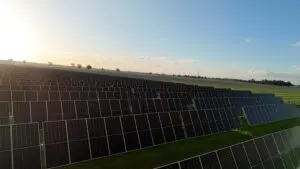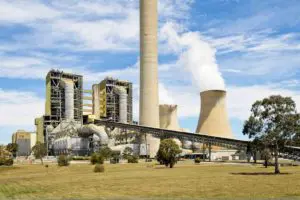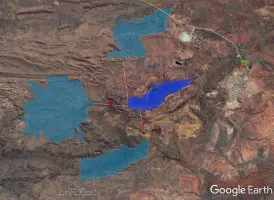Ninety business days to go before the carbon price legislation goes live.
Eighteen weeks before the 500 largest polluters have to begin to pay for the right to emit carbon pollution into the atmosphere.
A little over four months before a carbon price moves from remote possibility to legal fact.
And yet corporate Australia still seems reluctant to fully engage with the changes to the commercial landscape.
Undoubtedly the political landscape has a lot to do with it. The phony war between the Prime Minister and her predecessor seems to be escalating to the very real prospect of a challenge and a ballot. The relative confidence that the Gillard government would go the full term to late-2013 is being overtaken by new fears that an election will be called sooner rather than later, perhaps even as early as mid-year. And it seems unlikely in such a timeframe that Labor can claw back sufficient ground with the electorate to retain office.
The Liberal/National Party coalition led by Mr Abbott has insisted that, should it form government, the carbon price legislation will be repealed. Indeed, Mr Abbott has sworn a “blood oath” to do so. The fear, uncertainty and doubt that he has created in the perceptions of the public and the business community are not being diminished by the fact that such a change will be hard, if not impossible, to effect.
Firstly, as new Prime Minister, Mr Abbott will need the support of both houses of parliament, which will not be delivered in any upcoming election. Then he would require a double dissolution trigger, which could not realistically be engineered for a year or more. (And there is no certainty that a double dissolution would deliver the outcome he claims to seek.) Then he would have to face the legal challenges that would ensue.
Already, battalions of constitutional lawyers are earning their children’s private school fees for years to come, providing opinions on whether carbon property rights can be extinguished without compensation. And finally, he would have to jump through twisted political hoops to wind back increases in household and business compensation, and wean any government he leads off the multi-billion dollar revenue stream generated from selling pollution permits.
However, the political uncertainty is very real and is having an impact on both the supply and the demand of domestic carbon offsets from land-based projects.
Although there is a flurry of interest and activity among landowners, farmers, foresters and service providers to identify potential projects, there is a strong reluctance to be the first into the market. This is particularly true for new technologies and methodologies. The perception is that demand is uncertain and therefore the risks of generating new supply, already formidable, are magnified.
On the demand side, the big polluters and the market intermediaries (bankers, brokers, traders) do not seem prepared to contemplate purchase agreements other than spot trades for offsets that have already been issued and registered. Without a liquid secondary market, derivatives and risk management tools such as forwards and options will not emerge.
Buyers are also not interested in investing in the primary market, where they could discount prices for delivery and volume risk, simply because they perceive those risks as being too high to discount.
While the market therefore stagnates, the urgent need to act decisively and meaningfully continues to grow.
The climate change science is clear. If only political science were so logical.
Freddy Sharpe is CEO of Climate Friendly









